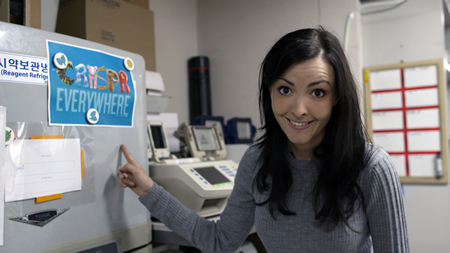When: Monday 12th November, 10:25am – 11:25am
Where: L1, Level 2 to the left of the registration/foyer area, down the hallway and through the doors on the right
Hashtag: #M5
The deficit model is deficient. Facts are dead. Feeling is the new thinking.
Meet the science communicators that are harnessing the arts to connect with their audience in a non-educational way. Although many scientists see the way the arts appeals to the emotional side of their audience as anathema, these are examples of science pitched straight at the heart and soul. But does it succeed? And what is success anyway?
Come prepared to take part, heckle and debate with:
Dr Phil Dooley, musician and storyteller for Phil Up On Science. He wants to know what Schrodinger’s cat thinks about still being a box 100 years later.
Craig Cormick, fiction writer and immersive science communicator.
Heather Catchpole, co-founder Refraction Media, who poetry to encapsulate ideas using minimum words and maximum effect. With poetry, humour and music she hopes to create empathy towards science.
Michael Mills, stage performer and alter ego to the singing palaeontologist Professor Flint who has been connecting local communities to their prehistory through music and storytelling.
Dr Michael Leach and Rachel Rayner who will challenge us to debate and create our own science-inspired visual poetry. If the right energy is supplied – swing dancing – Rachel may also undergo a phase transition from solid to liquid to gas.
David Harris, science communicator and artist. It’s an uneasy truce…



















